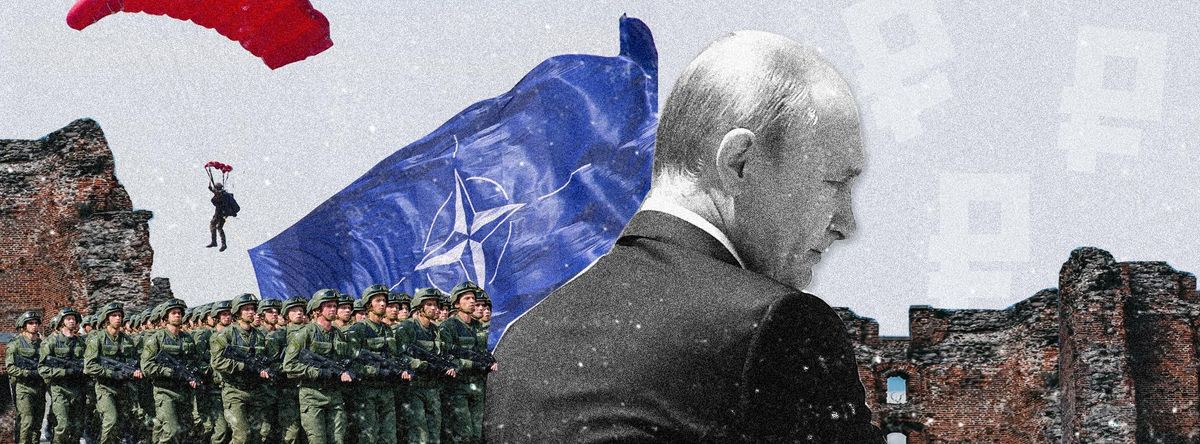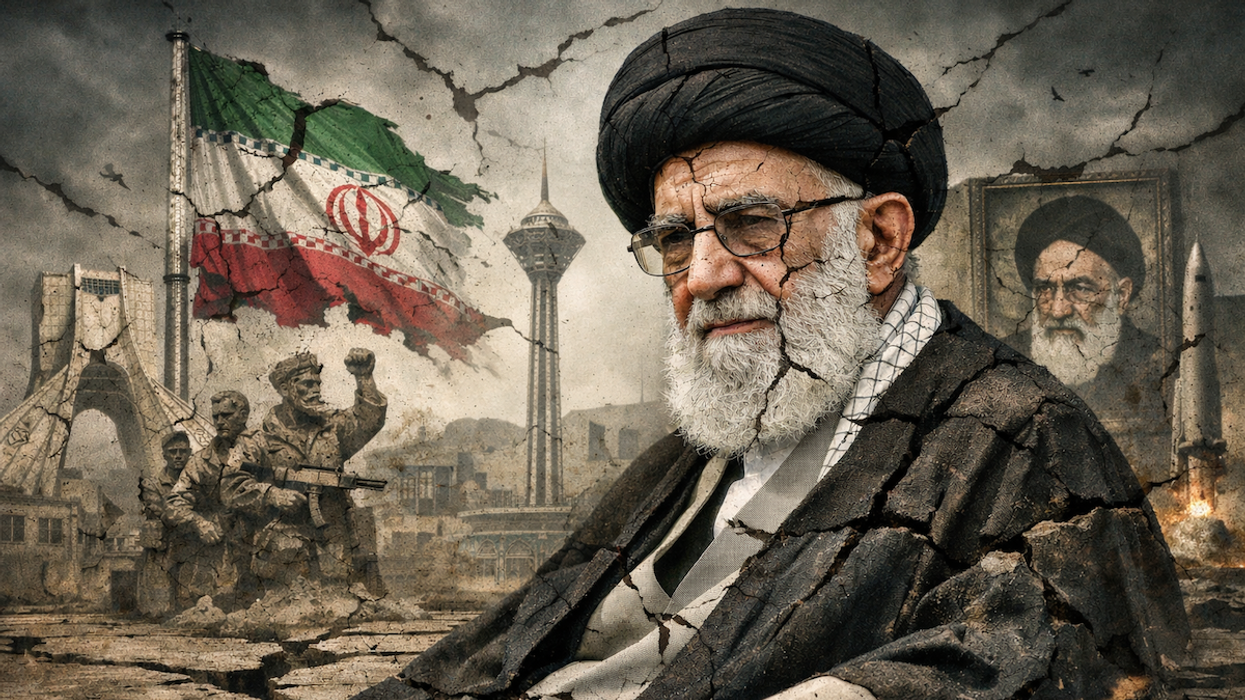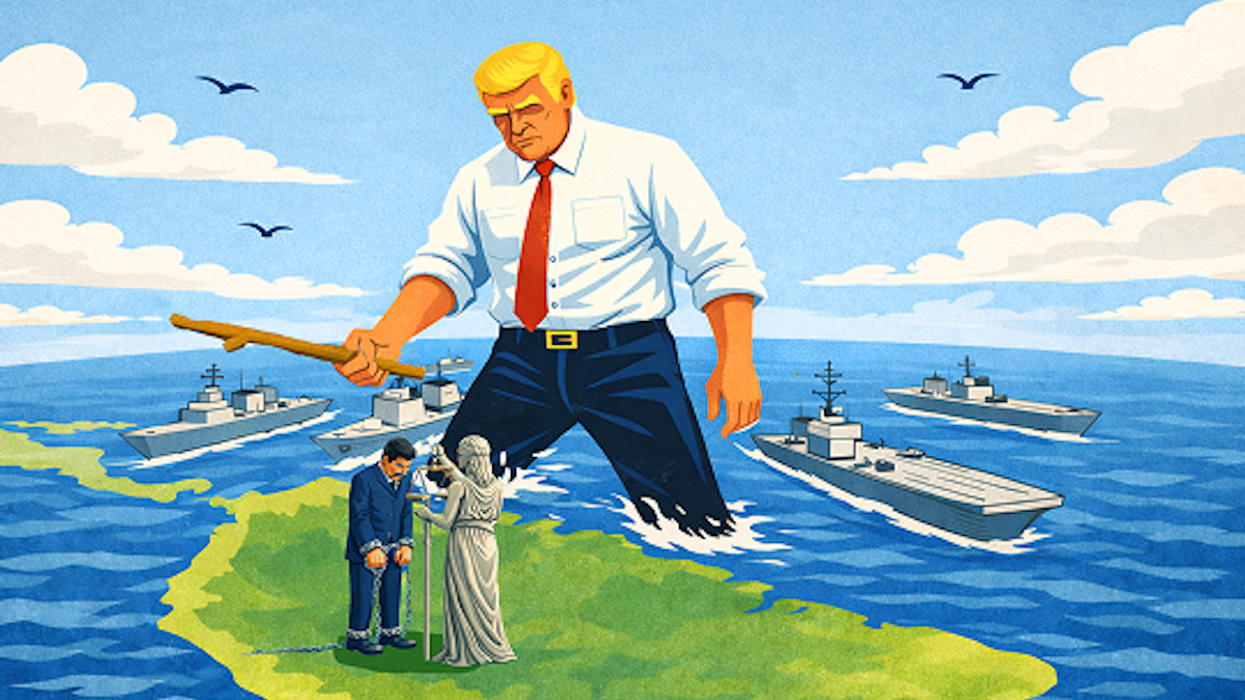In the early morning of March 4, Russian forces seized the Zaporizhzhia power station, Europe’s largest nuclear plant. Two days before, Russian troops gained control over the southern Ukrainian port city of Kherson, the first major city Russia has seized since it began its unprovoked invasion of Ukraine more than a week ago. Kherson’s strategic location on the Black Sea and the Dnieper River will serve as a launching pad for further Russian incursions into central, west, and east Ukraine.
Meanwhile, Russian missiles and airstrikes continue to indiscriminately hammer residential areas in Kyiv and Kharkiv, Ukraine’s capital and its second-largest city. And the strategic port city of Mariupol, which connects Crimea with the Donbas, remains under a brutal siege.
More than 2,000 civilians have died, about a million people have been displaced, and over a million have fled the country since last Thursday, according to the Ukrainian government and the United Nations.
Despite Ukrainians’ formidable resistance and Russia’s initial battlefield underperformance, much of east and south Ukraine will surely fall to Russian control in the coming weeks. Moscow’s numerical and material superiority is too overwhelming.
Make no mistake, though: Russia may “win” the battle for Ukraine, but it has already lost the war. President Vladimir Putin’s grave miscalculations have resulted in a geopolitically feebler Russia, an emboldened Ukraine, an invigorated West, an economy in shambles, and heightened risk of political instability.
Want to understand the world a little better? Subscribe to GZERO Daily by Ian Bremmer for free and get new posts delivered to your inbox every week.
Geopolitical blunder weakens Russia, strengthens adversaries
Putin has embroiled his country in a decades-long quagmire that has diminished Russian power and strengthened Russia’s adversaries, and that will sap his regime of legitimacy—at home and abroad.
After 30 years of listlessness, Russia’s invasion of Ukraine has “given NATO a reason to live again.” Never since the end of the Cold War had the trans-Atlantic alliance been more united or more galvanized.
Europeans have been woken up to the realities of hard power and are showing themselves willing to sacrifice sacred cows in areas like financial sanctions, weapons transfers, defense spending, and energy decoupling to rise to the occasion. Germany broke with eight decades of policy orthodoxy overnight, not only halting the Nord Stream 2 pipeline but also delivering lethal weapons to Ukraine, doubling its defense budget, and taking immediate steps to reduce its dependence on Russian natural gas. Even Putin admirer Viktor Orban’s Hungary supported the EU sanctions on Russia, and long-standing havens like Monaco and Switzerland have jumped on the bandwagon.
Putin has also managed to stir the United States to (briefly) overcome its political division to confront a common enemy, a feat not even the Covid-19 pandemic could achieve.
Moreover, Ukraine is now firmly and irrevocably aligned with the West, with the European Commission openly discussing its admission to the EU. Georgia and Moldova followed Kyiv in applying for membership. Historically neutral Finland and Sweden are now considering joining NATO, despite Moscow’s warnings.
It’s not just Russia’s neighbors that are drawing away from Moscow. Of the United Nations General Assembly’s 193 members, only North Korea, Eritrea, Syria, and Belarus voted against a resolution condemning Russia’s invasion of Ukraine (35 members abstained). Kazakhstan, one of Russia’s closest partners, recently refused Moscow’s request for troops. And China, Russia’s largest strategic ally, has consistently called for a negotiated settlement and disapproves of Russia’s invasion of Ukraine.
Economic sanctions, cultural boycott will hurt all Russians
As a result of Putin’s actions, Russia’s economy and financial system are on the verge of collapse.
Owing to crippling Western sanctions on Russian banks, companies, and individuals, the ruble is getting weaker by the day, most banks have been blocked from making transactions, the central bank’s reserves have been frozen, the government is set to default on its debt, and Russian companies have lost nearly all of their value.
Beyond sanctions, a growing number of Western companies are refusing to do business in or with Russia, with Microsoft, Apple, Google, Intel, AMD, TSMC, Oracle, HP, Dell, Ford, BMW, Volvo, Harley-Davidson, Shell, BP, ExxonMobil, Boeing, Airbus, MSC, Maersk, FedEx, UPS, Airbnb, IKEA, Adidas, and Nike, among the multinationals corporations announcing they are divesting from Russia or halting their Russian operations. Mind you, many of these same companies did not bat an eye when the Soviet Union was threatening nuclear war at the peak of the Cold War, so this boycott is unprecedented in its scale and severity.
All of this means that most trade with the US and Europe is about to grind to a halt, as Russia will find it increasingly hard to export the commodities it relies on for revenue (most notably, oil and gas) and to import both intermediate and manufactured goods from much of the world. The rapid forced decoupling of the Russian economy from the global trade and financial system will push it towards severe stagflation (i.e., double-digit recession and inflation), impoverishing ordinary Russians and oligarchs alike.
And it’s not just the economic effects that matter, because Russia is being ostracized culturally as well. Disney, Warner Bros., Sony, Paramount, and Universal have announced they will not release any new films in Russia. The country has also been banned from hosting and participating in sporting and cultural competitions, including the FIFA World Cup, the UEFA Champions League, the Winter Paralympics, the Formula 1 Grand Prix, and Eurovision. And Russian tourists, students, and businesspeople will find it much harder to travel abroad, as Russian airlines will be effectively banned from flying internationally.
Regime change no longer unthinkable
Putin’s political legitimacy and hold on power at home are under greater threat now than at any other time before. The more he escalates and the longer the war goes on, the more domestic disapproval of his regime will grow, as evidence of the violence inflicted on Ukrainians, economic pain, lifestyle disruptions, asset seizures, and cultural isolation turn the general population and the elites against him.
While state media continues to obscure the extent and destructiveness of the Russian “military operation” in Ukraine, history shows that the truth has a way of getting out—especially in the age of social media. Several prominent Russian influencers, athletes, artists, and politicians have voiced their opposition to their followers, and more than 6,500 Russians have already been arrested across multiple cities for protesting the war.
The millions of Russians with Ukrainian loved ones, or with relatives and friends deployed to fight there, will soon hear of the pointless bloodshed being unleashed by their government. Many of them will not stay quiet.
Putin still has a stranglehold over Russia’s security services and military. As long as that remains true, his seat at the Kremlin will remain safe. That’s why the risk of a palace coup is still low. At the same time, the threat is also the highest it’s ever been. Even his loyal siloviki have their red lines, and this war of choice could come close to crossing it.
A pyrrhic “victory”
All of this is Putin’s doing. For a leader who sought to chip away at NATO’s unity, weaken the European Union, divide the United States, prevent NATO and the EU from closing in on his "near-abroad," make Russia strong, and tighten his grip on power, he has accomplished the opposite in one fell swoop.
He failed to bully Ukraine and NATO into giving in to his demands. He underestimated the Ukrainian military and overestimated both Ukrainian pro-Russian sentiment and his own military’s abilities, miscalculating how swiftly, easily, and bloodlessly Kyiv would fall, the Ukrainian government could be deposed, a puppet regime could be installed, and occupied territory could be held. He misjudged Ukrainian President Volodymyr Zelensky’s ability to inspire external support and domestic resistance.
He was unprepared for the ferocity and cohesion of the West’s response, especially Europe’s. He was overconfident in Russia’s ability to evade and withstand sanctions. And he did not imagine the extent of international backlash, diplomatic isolation, and corporate blacklisting his invasion would trigger.
In hindsight, Putin’s strategic blunder will be seen as comparable to the Soviet-Afghan War that ultimately precipitated the collapse of the USSR (and, incidentally, also to the Afghanistan War that eroded America’s standing and undermined its global leadership).
Unfortunately, all of Putin’s missteps don’t make it any less likely that Ukraine will suffer a tremendous amount of death and destruction. By sheer force of numbers, Russia will achieve its military objectives. The battle will be protracted. Ukrainians will mount a fierce insurgency that will drain Russia of blood and treasure, and thousands of innocent people on both sides will die. Putin will fail to subjugate the Ukrainian people. But eventually, Russian forces will take Kyiv, establish a puppet government, and forcibly occupy part of the country.
Yet Putin’s likely “victory” on the battlefield guarantees that he will never achieve his core political objective and the one reason he chose to invade Ukraine in the first place: to make Russia great again.
Russia will come out of this war significantly—and, possibly, existentially—weakened.
🔔 And if you haven't already, don't forget to subscribe to my free newsletter, GZERO Daily by Ian Bremmer, to get new posts delivered to your inbox.



















